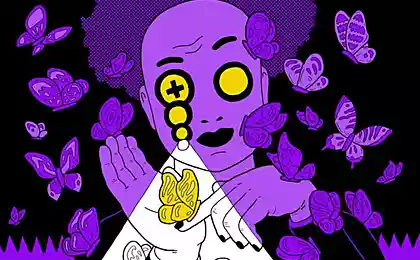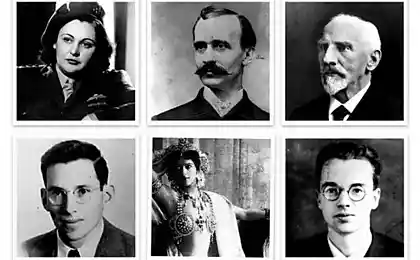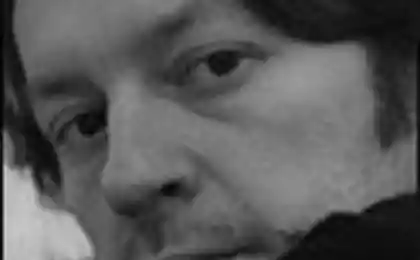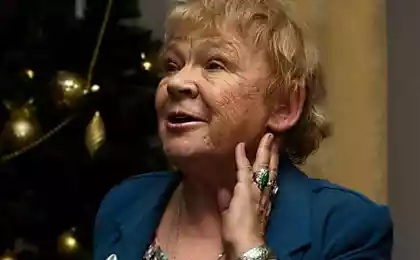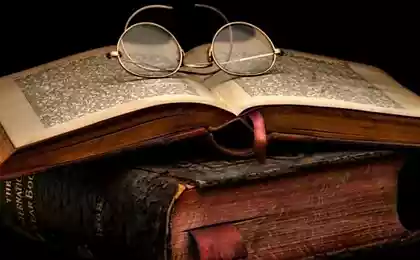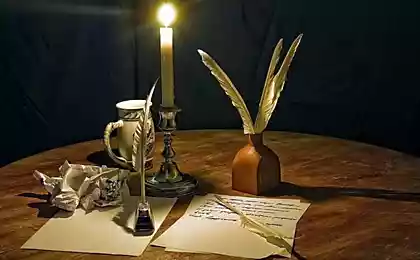475
Feather in the exploration of writers who tried espionage
Seventy seven million seventy thousand two hundred fifty two
© Nina Fowler
British literature gave the world's most famous spy — James bond.But there would be novel, does not serve the author in intelligence? Combining literary work with the duties of a spy — another true English tradition at least four centuries. The most outstanding biography in which literature and the secret service went hand in hand. Christopher Marlowe When authorities came the news that the playwright Christopher Marlowe is found dead in a tavern three miles from London, the cause announced immediately — the usual drunken fight over bills. Marlo or did not want to pay, then claimed that he cheated. With it once has happened just such a story, and version, with its repetition seemed quite convincing. The name of the dead man, meanwhile, rattled the capital. Marlowe was the first great dramatist of the time of Queen Elizabeth, his "Tamerlane" shook the audience, and the following works have established the glory. Shakespeare learned from Marlowe, competed with him. They were born the same year, 1564, but Marlowe had a strong advantage — masters degree in Cambridge. A may 30, 1593 graduate of an elite University, a member of the circle formed by London youth, a man with connections in the very top of companies was found with a wound over his right eye, received from dagger worth 12 pence.
Of when Marlo killed. At Cambridge he became friends with the nephew of the Minister of Walsingham, the founder of British intelligence, a genius of espionage, held in Europe, extensive corset. A fearless nature and love for adventure led students to the number of agents. The secret of his constant absences threatened to interrupt his studies, but stood up himself Privy Council — the young man provided a valuable service to the Queen.
Marlo has combined literary activity with a service undercover agent, to separate the continent. It was introduced among the Catholics, secretly preparing antiprotestant performances on the island and dreaming about the assassination of Elizabeth. But in 1593 he was considered the author of the heretical treatise, issued a warrant for the arrest, was summoned to a meeting of the Privy Council and left at large under daily surveillance. Ten days in the tavern, he shared his last meal with three people of Walsingham. Subsequently, they got away with it, explaining all self-defense.
Daniel Defoe Jonathan swift despised the Daniel Defoe "the corruption of the pen", for lack of political ideals, because he never had access to the Royal reception rooms and went to the patrons in the back. But swift didn't know the whole truth: Defoe served as a spy.
At the end of XVII — beginning of XVIII century, when the English throne was passed from one monarch to another, and all their rights were not undisputed, the society was in turmoil, the dispute tories and the Whigs has plagued the country, and everyone who knew how to write, sought to acquire a literary podium and the audience. Defoe set off at once in two adventure — trade and political journalism. The first brought about his ruin, the second in 1703 to jail. To his rescue came Robert Harley, first Earl of Oxford and Earl Mortimer. Assessing political enemy's mind, Hurley decided to buy it. Defoe was a secret agent of the government and the tories, of course, their best acquisition.
With the participation of Defoe was an important event in history — the Union of England and Scotland in the UK. In Edinburgh, Defoe was able to infiltrate a counselor in key organs of the country — the Church and the Parliament. He discredited prostredky figures gave false predictions was distributing pamphlets on behalf of ordinary Scots podtasovyvaya public opinion. "I am dedicated in all their stupidity and absolutely above suspicion about correspondence with anyone in England," he wrote to Harley in London. The exposure, undoubtedly, would be Defoe's death. His espionage activities, however, contributed to the development of British literature: experiences from public life enriched Defoe as a writer, and that he was honored to bring the genre of the novel to a new level.
Somerset Maugham
Maugham himself actually came to investigate. Medical education, from the beginning of the First world war he was in Europe in the red cross. In 1915, at the request of Somerset his wife arranged him a meeting with Mr R — senior intelligence officer of Britain. Shortly Maugham once again went to the continent, but with other purposes. For work in Switzerland doesn't even have to invent a legend — Maugham lived as a writer.
Russia was the second task of the agent. Maugham was to prevent the pacifist moods and not to give the allies out of the war, so the authorities had to hold the Interim government. Scout repeatedly met with senior government officials, including Kerensky and Savinkov, but could not do anything in October hastily left the country via Sweden. He was a little upset, frustrated and literary monument of the October revolution in Russia has created, though, and was a direct participant in the events.
Quiet and observant, prone to sound solutions and have the ability to always keep without drawing suspicion calmness, the writer is perfectly suited for the secret service. Ten years out of print was a collection of "Ashenden, or the British agent". Originally the stories had to be thirty one, but a friend of Maugham, Winston Churchill was forced to exclude fourteen, though rozhlasova secret information. Kenneth Clarke, friend of Maugham's, recalled: "He often talked about intelligence, which is extremely admired. I suppose he liked the light that it shed on human nature".
Graham Greene and foreign Policy of the country early became interested in Greene. His library experience began with travel and detectives, and at age 18 he received a membership card of the Communist party of Britain. Unbalanced character, however, was not allowed to assume that green will become a spy. The teenager on account of several suicide attempts and six months ' treatment with a psychoanalyst.
Green came out of Oxford with published poetry collection behind, converted to Catholicism, married, and engaged in journalism and literature. Before the Second world war remained for almost 15 years, during which he managed to become a famous author. Secret investigations and policy filled him texts. In this green life insisted that it is an apolitical writer. Circa 1940 in MI-6 began to look for a person to work in Sierra Leone. Sister of Elizabeth Greene, who previously worked in intelligence, suggested the candidacy of the brother with his hand there was no objection.
Green was chosen because of his passion for travelling, experiences which he shared in the books. Before the war he traveled to Sweden, Mexico and Liberia — 400 miles through the jungle, tropical diseases and the constant feeling of imminent death. In 1941, the author of the book "Journey without maps" went to Africa a scout, officially a member of the diplomatic mission. Due to the lack of information about the details of the service of the green there was a lot of innuendo. He was condemned for his friendship with the head of Kim Philby who worked for the USSR, and instability of political views. But, as acknowledged later, in politics he sought and humanism, and, not finding him, dedicated to him his book.
Yang Flamingoes bond, British intelligence agent 007, was born on 13 April 1953. The first novel of the series, the film adaptation of which is now bring the creators of the billions sold well, but no rush. It was the first book of the author, until then known for another talent — a talent of counterintelligence.
In the life of Fleming's intelligence appeared several times. In 1933, a reporter for Reuters he arrived in Moscow to cover the trial in the case of the six British engineers accused of espionage. Fleming was almost interviewed Stalin, but received only a polite refusal with an apology that he can't accept. He dabbled in different areas, but the career didn't work out. The following work was prompted by historical circumstances rather than personal inclination. A few months before the Second world war Fleming was the personal assistant accepted the head of naval intelligence, rear Admiral John Godfrey, and it soon became clear that this calling. Fleming has proved to be indispensable. Agent 17F was preparing secret documents, speeches and memoranda, liaised with other departments of the security services and representatives of Franklin Roosevelt.
Fleming trusted unconditionally, he was appreciated not only as a performer but also as a talented administrator. They formed an assault detachment No. 30, brought the documents of the enemy to headquarters directly from the front. Counterintelligence assessed deceived by opponents, calling it "one of the greatest innovators of the German intelligence services." Love subordinates, however, he did not use — they heard what the commander said to them, "how against your red Indians." The war not only gave Fleming the idea to write a novel about intelligence and supplied the material, but also pointed out a suitable place. In Jamaica, in 1942, the agent 17F participated in the Anglo-American summit. Here ten years later on purchased by the Fleming Villa, originated the legendary James bond.
Source: theoryandpractice.ru
© Nina Fowler
British literature gave the world's most famous spy — James bond.But there would be novel, does not serve the author in intelligence? Combining literary work with the duties of a spy — another true English tradition at least four centuries. The most outstanding biography in which literature and the secret service went hand in hand. Christopher Marlowe When authorities came the news that the playwright Christopher Marlowe is found dead in a tavern three miles from London, the cause announced immediately — the usual drunken fight over bills. Marlo or did not want to pay, then claimed that he cheated. With it once has happened just such a story, and version, with its repetition seemed quite convincing. The name of the dead man, meanwhile, rattled the capital. Marlowe was the first great dramatist of the time of Queen Elizabeth, his "Tamerlane" shook the audience, and the following works have established the glory. Shakespeare learned from Marlowe, competed with him. They were born the same year, 1564, but Marlowe had a strong advantage — masters degree in Cambridge. A may 30, 1593 graduate of an elite University, a member of the circle formed by London youth, a man with connections in the very top of companies was found with a wound over his right eye, received from dagger worth 12 pence.
Of when Marlo killed. At Cambridge he became friends with the nephew of the Minister of Walsingham, the founder of British intelligence, a genius of espionage, held in Europe, extensive corset. A fearless nature and love for adventure led students to the number of agents. The secret of his constant absences threatened to interrupt his studies, but stood up himself Privy Council — the young man provided a valuable service to the Queen.
Marlo has combined literary activity with a service undercover agent, to separate the continent. It was introduced among the Catholics, secretly preparing antiprotestant performances on the island and dreaming about the assassination of Elizabeth. But in 1593 he was considered the author of the heretical treatise, issued a warrant for the arrest, was summoned to a meeting of the Privy Council and left at large under daily surveillance. Ten days in the tavern, he shared his last meal with three people of Walsingham. Subsequently, they got away with it, explaining all self-defense.
Daniel Defoe Jonathan swift despised the Daniel Defoe "the corruption of the pen", for lack of political ideals, because he never had access to the Royal reception rooms and went to the patrons in the back. But swift didn't know the whole truth: Defoe served as a spy.
At the end of XVII — beginning of XVIII century, when the English throne was passed from one monarch to another, and all their rights were not undisputed, the society was in turmoil, the dispute tories and the Whigs has plagued the country, and everyone who knew how to write, sought to acquire a literary podium and the audience. Defoe set off at once in two adventure — trade and political journalism. The first brought about his ruin, the second in 1703 to jail. To his rescue came Robert Harley, first Earl of Oxford and Earl Mortimer. Assessing political enemy's mind, Hurley decided to buy it. Defoe was a secret agent of the government and the tories, of course, their best acquisition.
With the participation of Defoe was an important event in history — the Union of England and Scotland in the UK. In Edinburgh, Defoe was able to infiltrate a counselor in key organs of the country — the Church and the Parliament. He discredited prostredky figures gave false predictions was distributing pamphlets on behalf of ordinary Scots podtasovyvaya public opinion. "I am dedicated in all their stupidity and absolutely above suspicion about correspondence with anyone in England," he wrote to Harley in London. The exposure, undoubtedly, would be Defoe's death. His espionage activities, however, contributed to the development of British literature: experiences from public life enriched Defoe as a writer, and that he was honored to bring the genre of the novel to a new level.
Somerset Maugham
Maugham himself actually came to investigate. Medical education, from the beginning of the First world war he was in Europe in the red cross. In 1915, at the request of Somerset his wife arranged him a meeting with Mr R — senior intelligence officer of Britain. Shortly Maugham once again went to the continent, but with other purposes. For work in Switzerland doesn't even have to invent a legend — Maugham lived as a writer.
Russia was the second task of the agent. Maugham was to prevent the pacifist moods and not to give the allies out of the war, so the authorities had to hold the Interim government. Scout repeatedly met with senior government officials, including Kerensky and Savinkov, but could not do anything in October hastily left the country via Sweden. He was a little upset, frustrated and literary monument of the October revolution in Russia has created, though, and was a direct participant in the events.
Quiet and observant, prone to sound solutions and have the ability to always keep without drawing suspicion calmness, the writer is perfectly suited for the secret service. Ten years out of print was a collection of "Ashenden, or the British agent". Originally the stories had to be thirty one, but a friend of Maugham, Winston Churchill was forced to exclude fourteen, though rozhlasova secret information. Kenneth Clarke, friend of Maugham's, recalled: "He often talked about intelligence, which is extremely admired. I suppose he liked the light that it shed on human nature".
Graham Greene and foreign Policy of the country early became interested in Greene. His library experience began with travel and detectives, and at age 18 he received a membership card of the Communist party of Britain. Unbalanced character, however, was not allowed to assume that green will become a spy. The teenager on account of several suicide attempts and six months ' treatment with a psychoanalyst.
Green came out of Oxford with published poetry collection behind, converted to Catholicism, married, and engaged in journalism and literature. Before the Second world war remained for almost 15 years, during which he managed to become a famous author. Secret investigations and policy filled him texts. In this green life insisted that it is an apolitical writer. Circa 1940 in MI-6 began to look for a person to work in Sierra Leone. Sister of Elizabeth Greene, who previously worked in intelligence, suggested the candidacy of the brother with his hand there was no objection.
Green was chosen because of his passion for travelling, experiences which he shared in the books. Before the war he traveled to Sweden, Mexico and Liberia — 400 miles through the jungle, tropical diseases and the constant feeling of imminent death. In 1941, the author of the book "Journey without maps" went to Africa a scout, officially a member of the diplomatic mission. Due to the lack of information about the details of the service of the green there was a lot of innuendo. He was condemned for his friendship with the head of Kim Philby who worked for the USSR, and instability of political views. But, as acknowledged later, in politics he sought and humanism, and, not finding him, dedicated to him his book.
Yang Flamingoes bond, British intelligence agent 007, was born on 13 April 1953. The first novel of the series, the film adaptation of which is now bring the creators of the billions sold well, but no rush. It was the first book of the author, until then known for another talent — a talent of counterintelligence.
In the life of Fleming's intelligence appeared several times. In 1933, a reporter for Reuters he arrived in Moscow to cover the trial in the case of the six British engineers accused of espionage. Fleming was almost interviewed Stalin, but received only a polite refusal with an apology that he can't accept. He dabbled in different areas, but the career didn't work out. The following work was prompted by historical circumstances rather than personal inclination. A few months before the Second world war Fleming was the personal assistant accepted the head of naval intelligence, rear Admiral John Godfrey, and it soon became clear that this calling. Fleming has proved to be indispensable. Agent 17F was preparing secret documents, speeches and memoranda, liaised with other departments of the security services and representatives of Franklin Roosevelt.
Fleming trusted unconditionally, he was appreciated not only as a performer but also as a talented administrator. They formed an assault detachment No. 30, brought the documents of the enemy to headquarters directly from the front. Counterintelligence assessed deceived by opponents, calling it "one of the greatest innovators of the German intelligence services." Love subordinates, however, he did not use — they heard what the commander said to them, "how against your red Indians." The war not only gave Fleming the idea to write a novel about intelligence and supplied the material, but also pointed out a suitable place. In Jamaica, in 1942, the agent 17F participated in the Anglo-American summit. Here ten years later on purchased by the Fleming Villa, originated the legendary James bond.
Source: theoryandpractice.ru
On the performance of children is affected by heredity
Doctors have found a new mechanism of brain recovery after stroke

